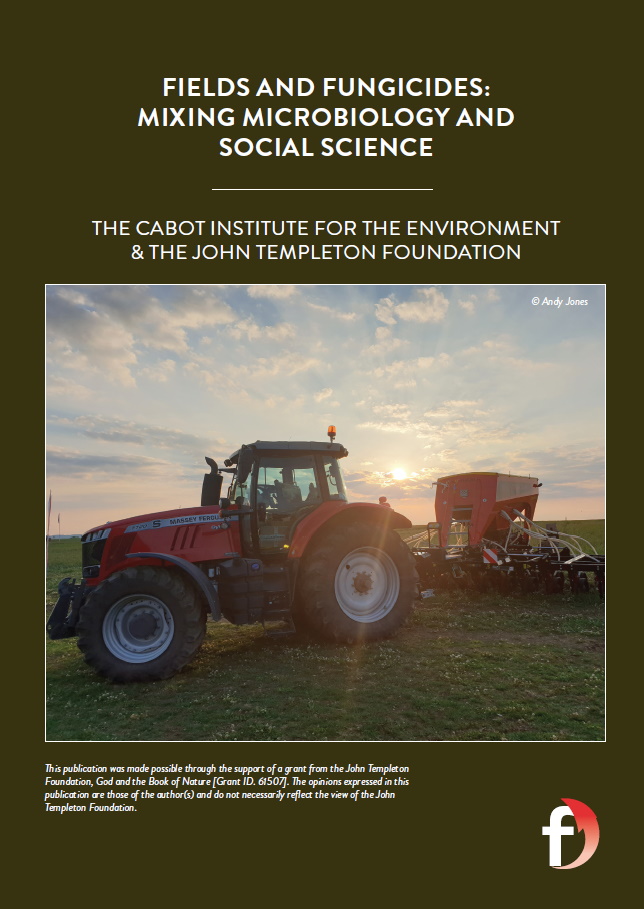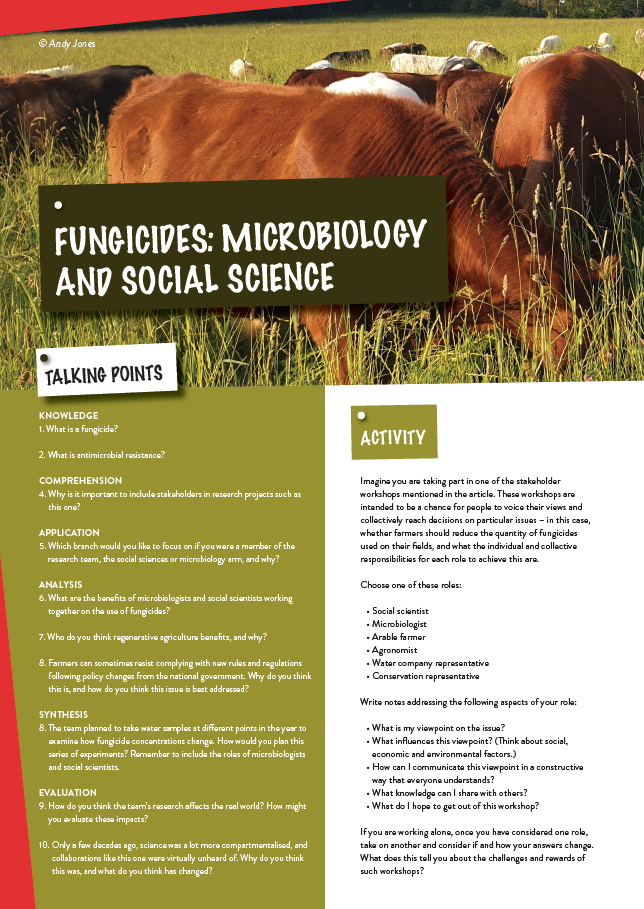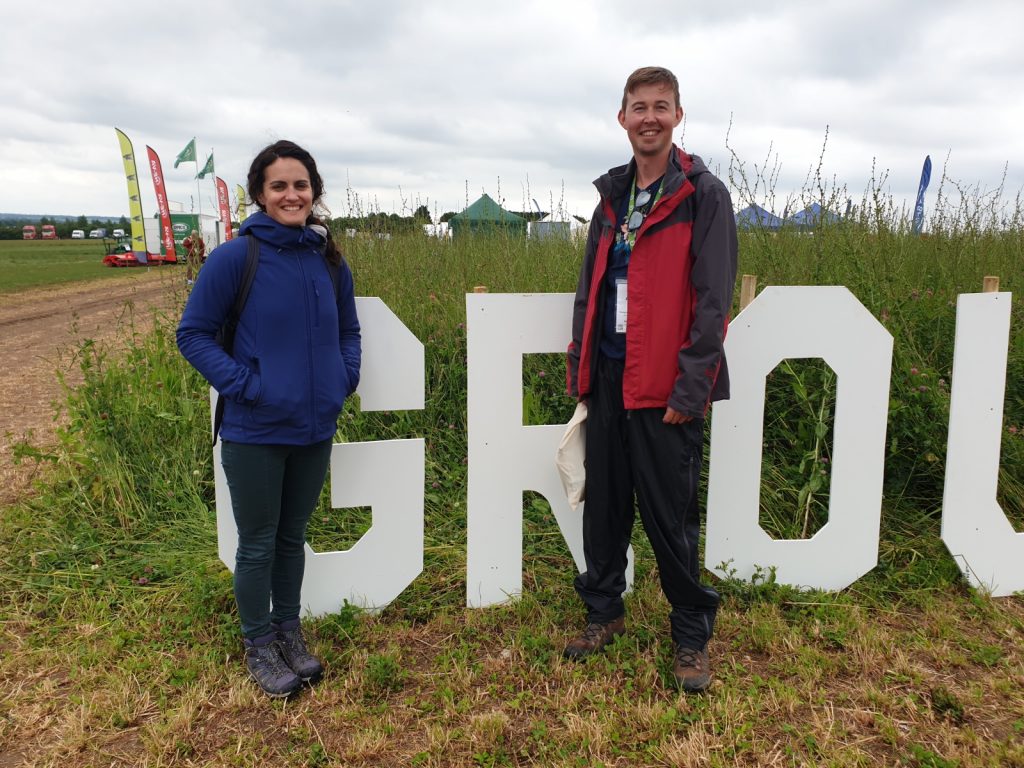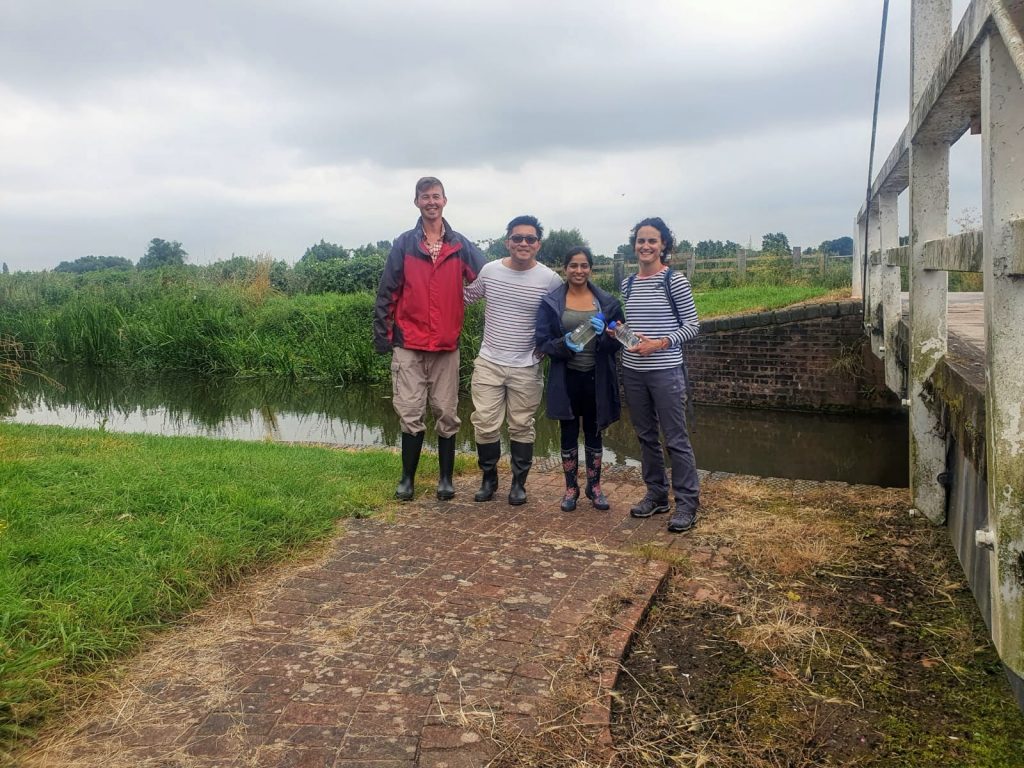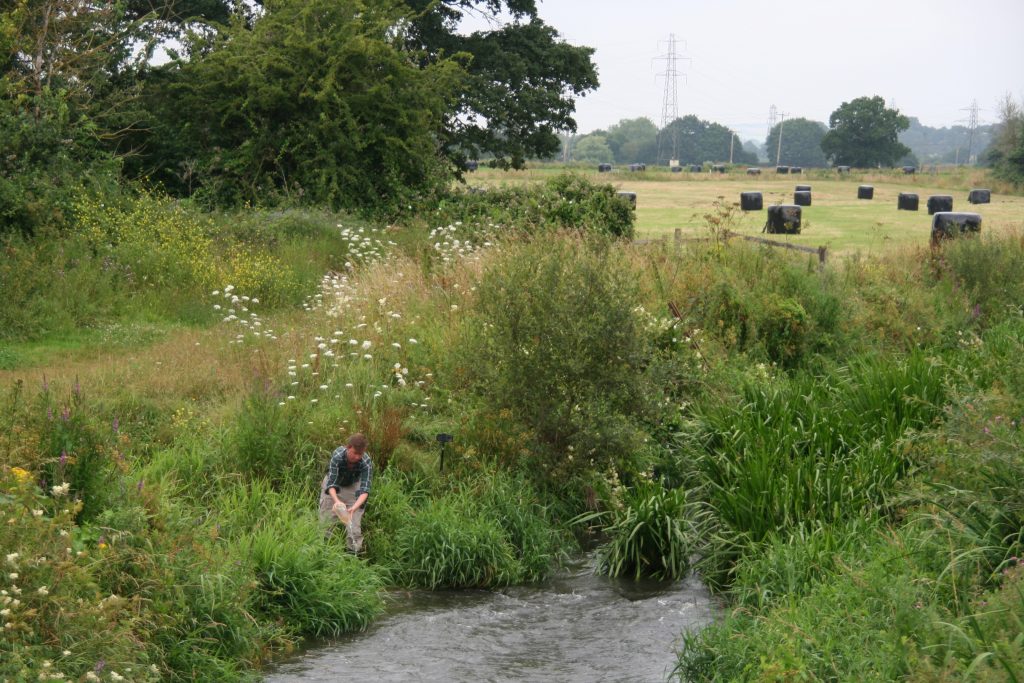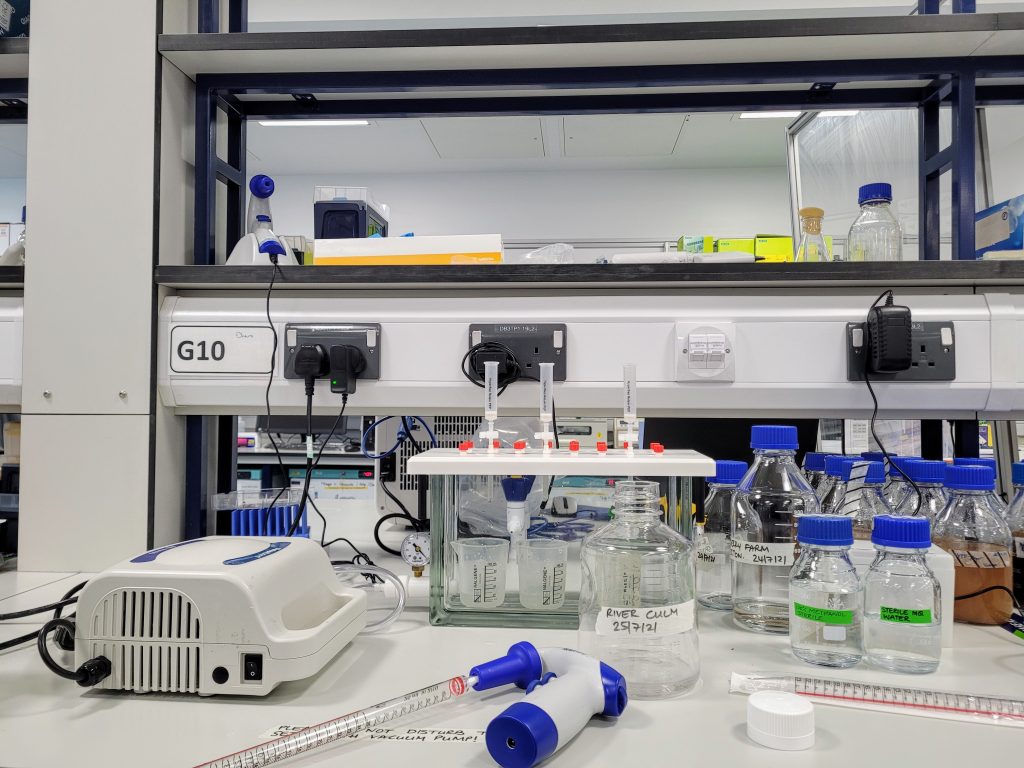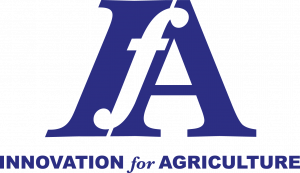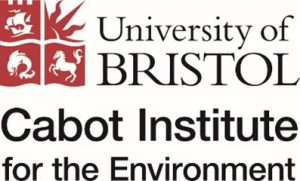Fields and fungicides: mixing microbiology and social science
Farmers often use fungicides to protect their crops from fungal diseases. However, there are worries that these fungicides can damage the environment if they leak into water sources and may even build antimicrobial resistance against treatments for human diseases. A unique team of early-career researchers from the University of Exeter and the University of Bristol in the UK is addressing this concern through environmental tests and direct engagement with farmers
GLOSSARY
AGRONOMIST – an expert in the science of soil management and crop production
ANTIBIOTIC – any compound that combats or destroys bacterial microbes
ANTIMICROBIAL RESISTANCE – the ability of microorganisms to withstand antimicrobial treatments
AZOLE – a group of chemical compounds often used as agricultural or medicinal fungicides
FUNGI – an organism that has no chlorophyll and must live in or on plants, animals or decaying material (e.g., mould, mildew or mushrooms)
FUNGICIDE/ANTIFUNGAL – a group of antimicrobials that specifically combats or destroys fungal microbes
PATHOGEN – a disease-causing organism, such as some bacteria, viruses, or fungi
RUNOFF – the draining away of substances from land into water sources
A meeting at a training event about antimicrobial resistance led to a diverse group of early-career researchers realising that their skillsets could be combined to investigate an underexplored issue. “We come from a variety of backgrounds including microbiology, human geography and theology,” says Dr Andy Jones, the theologian in the group. While biologists in the team have experience in researching antimicrobial resistance in fungi, the social scientists have experience of working and collaborating with farmers. Together, they investigated how fungicide use in agriculture could potentially lead to antimicrobial resistance in human diseases.
The team’s project involved collecting and analysing water samples from eight river sites in south-west England, conducting interviews with farmers and developing a network of stakeholders in the region. The team involved farmers and their viewpoints at every stage. “We wanted our research to develop from our discussions with farmers and stakeholders,” says Andy. “For instance, they helped us identify locations for prospective water samples and select fungicides to test for.”
THE RISKS OF FUNGICIDES
Any biological or chemical compound that kills fungi is a fungicide. “Our research focuses on chemical fungicides called azoles,” says Andy. “We suspected that fungicides used for arable farming were making their way into nearby water bodies.” If fungicides linger in the local environment, they have the potential to make fungal species more resistant to those fungicides. “Treatments for human fungal infections are derived from the same class of fungicides that are used in arable farming, so resistance to fungicides in arable farming might lead to resistance to antifungal treatments in humans,” explains Andy.
Antimicrobial resistance is an emerging issue around the world. Some antibiotic-resistant pathogens, such as Methicillin-resistant Staphylococcus aureus (MRSA), develop in hospitals as a result of extensive use of antibiotics in humans. Elsewhere, the overuse of antibiotics to treat or protect livestock from disease can lead to similar outcomes. It is believed that the overuse of antifungals on crops also presents a risk, but while there has been research into antibiotic resistance emerging from the meat industry, antifungal resistance associated with fungicide runoff from arable farming into surface waters is comparatively underexplored. “The threat is serious as we have a limited arsenal of antifungals to treat fungal infections in humans,” says microbiologist Dr Dhara Malavia. “If our antifungals become useless, it could increase mortality from infections that would otherwise have been treated.”
The microbiologists on the team analysed water samples from eight river sites adjacent to fields where fungicides were applied. “Because of the COVID-19 pandemic, we were unable to gather samples immediately after fungicide application,” says Andy. “We eventually took our samples many months after the chemicals were applied and we still detected fungicides in every sample.” This indicates that these chemicals remain in the environment, rather than breaking down, which creates an environment where fungi are more likely to develop resistance.
THE IMPORTANCE OF SOCIAL SCIENCE
While microbiology is needed to understand how fungicides affect the environment, it is also important to understand why fungicides are used. “We have to consider farmers’ motivators from a social science perspective,” says human geographer Dr Ray Chan. The social scientists in the team worked with a group called Innovation for Agriculture that connects farmers with academic researchers. The scientists spent time getting to know farmers in the research area, understanding their points of view and learning about the economic pressures they experience.
“It’s important to understand the history of fungicide use on a farm, as well as the relationships farmers have with external advisers such as agronomists, and how these relationships influence decisions to use fungicides,” says human geographer Dr Susan Conlon. “Social science methods, such as interviewing and participant observation, are necessary to explore these questions and allow farmers to communicate their opinions and experiences.” This inclusivity is necessary to build trust between researchers and farmers and affects how seriously farmers take any recommendations the research provides.
“There doesn’t seem to be consensus amongst farmers regarding fungicide use,” says Andy. “While some farmers are concerned about environmental sustainability and have reduced chemical use to increase soil health, others continue to use chemicals to ensure consistent crop yields and economic returns.” Agricultural practices are changing as an increasing number of farmers experience decreases in their soil quality and concerns grow about future viability of crops. For instance, regenerative agriculture is a growing movement that focuses on sustainable practices developed through knowledge of ecological relationships and local qualities of the land. This tends to involve much lower levels of chemical application, including fungicides.
Additionally, the team uncovered interesting relationships between farmers and other stakeholders. “Farmers often pay agronomists to advise them on what chemicals they need to apply to their crops,” says Andy. “This exposes an interesting dynamic of trust between farmers and agronomists.” Given that agronomists are often employed by the companies that develop fungicides, some farmers reported suspicions that the agronomists may over-estimate the quantity of fungicide needed to protect their crops, but farmers also expect agronomists to secure consistent crop yields for them each harvest.
COLLABORATION
“Our collaboration has encouraged us to think about the ways social, biological and political issues intersect,” says Andy. The team was invited to attend the Groundswell farming festival, which proved invaluable for learning about the issues that concern farmers, and how agricultural techniques are changing and evolving, including emerging movements such as regenerative agriculture.
As with any collaboration, there were barriers to overcome. Different specialisms use different ‘languages’, so finding ways to communicate across disciplines, without relying on specialist terms, provided another learning opportunity for everyone involved.
NEXT STEPS
“We are looking to expand on our findings by taking a larger number of water samples over a longer period,” says Andy. The team is interested in whether fungicide concentrations in water bodies fluctuate throughout the year, and to what extent this relates to farmers’ applications of fungicides. The team also wants to dig deeper into the relationships between farmers and agronomists, and how such relationships can be nurtured to ensure the best outcomes for all, including the environment and wider society.
The team will bring together representatives from farming associations, water companies and agronomic organisations as part of a steering committee, making recommendations to policy makers. The researchers will also disseminate their findings through online workshops and articles for the wider research community, highlighting the risks of antimicrobial resistance as well as the pressures farmers face. “Our mix of disciplines is unusual, but there is growing interest from universities to promote these kinds of collaborative projects,” says Andy. “Academic disciplines can too easily become isolated from one another, which can create a barrier for solving problems effectively and communicating research outcomes.”
Reference
https://doi.org/10.33424/FUTURUM265
 DR SUSAN CONLON
DR SUSAN CONLON
Human Geography, University of Bristol (CABOT), UK
FUNDER: Cabot Institute for the Environment
DR RAY CHAN
Human Geography, University of Exeter, UK
FUNDERS: UK Research and Innovation (UKRI), The Wellcome Trust, EU Cost Network
DR ANDY JONES
Theology and Philosophy, University of Exeter, UK
FUNDER: John Templeton Foundation
DR DHARA MALAVIA
Molecular Microbiology, University of Exeter, UK
FUNDERS: Wellcome Trust, Cabot Innovation Fund
DR AIMEE MURRAY
Microbiology, University of Exeter, UK
FUNDERS: Natural Environment Research Council (NERC), Biotechnology and Biological Sciences Research Council (BBSRC)
JOINT RESEARCH PROJECT
Understanding fungicide use in food crops in Bristol and Devon in the UK
 DR SUSAN CONLON
DR SUSAN CONLON
Human Geography, University of Bristol (CABOT), UK
FUNDER: Cabot Institute for the Environment
DR RAY CHAN
Human Geography, University of Exeter, UK
FUNDERS: UK Research and Innovation (UKRI), The Wellcome Trust, EU Cost Network
DR ANDY JONES
Theology and Philosophy, University of Exeter, UK
FUNDER: John Templeton Foundation
DR DHARA MALAVIA
Molecular Microbiology, University of Exeter, UK
FUNDERS: Wellcome Trust, Cabot Innovation Fund
DR AIMEE MURRAY
Microbiology, University of Exeter, UK
FUNDERS: Natural Environment Research Council (NERC), Biotechnology and Biological Sciences Research Council (BBSRC)
JOINT RESEARCH PROJECT
Understanding fungicide use in food crops in Bristol and Devon in the UK
ABOUT MICROBIOLOGY
Microbiology involves the study of microbes – any living organism too small to be seen by the unaided eye. Microbes include bacteria, viruses and many species of fungi. Dr Dhara Malavia and Dr Aimee Murray run the microbiology component of this research project. Dhara and Aimee collected and analysed water samples from eight river sites in the project area.
As the project progresses, they aim to expand their work to take a closer look at the interactions between fungicides and local microbial populations. “We are aiming to do local environmental risk assessments to determine if azoles found in waters surrounding farms might be negatively impacting local ecosystems and if azoles could increase levels of resistance,” explains Aimee.
Dhara and Aimee’s findings will only be useful if they can be communicated effectively. “Our conclusions will be useful as a talking point with farmers, to understand their practices and communicate how these may be affecting their local environment,” says Aimee. “It might also be of interest to policy makers, as part of the evidence they would use to decide whether new legislation is needed to limit azole application.”
Dhara and Aimee use a technique called high-performance liquid chromatography, which is a powerful method of separating, identifying and quantifying the chemical compounds of a particular mixture. “Since the technique offers high sensitivity, it is ideal for detection of small quantities of azoles found in water samples,” says Dhara. “Using this technique, we have detected four different agricultural azoles in collected water samples, with one in particular present in almost every sample.”
To assess whether or not these azoles present a risk, Dhara and Aimee set ‘thresholds’ that define the concentration at which azoles are considered dangerous for environmental or human health. Setting these involves consulting pre-existing scientific literature alongside their own research. “Pre-published data covers the effects of azoles on key elements of the ecosystem such as algae or freshwater invertebrates,” says Aimee. “Our data is generated using a new experimental tool called the SELECT method which finds the lowest concentration of the azole that is likely to increase resistance.”
“STEM scientists and social scientists communicate differently to some extent!” says Aimee. “This means it can sometimes be a challenge to understand or be fully understood. We benefit from learning about social science approaches and knowing that our research will reach the relevant people.”
EXPLORE A CAREER IN MICROBIOLOGY
• The Royal Society of Biology provides career resources for students: www.rsb.org.uk/careers-and-cpd/careers/career-resources
• The Microbiology Society provides advice about degrees and apprenticeships:
www.microbiologysociety.org/careers/information-for-school-leavers.html
• Aimee recommends seeking lab experience. The BioGrad course is one way to achieve this, and it offers some means-tested bursaries: www.biograd.co.uk/laboratory-skills-and-microbiology.php
• Salaries for microbiologists in the UK vary. For instance, microbiologists are employed by the NHS at salaries starting at around £32,000. More information can be found here:
www.prospects.ac.uk/job-profiles/microbiologist
Aimee recommends taking biology, chemistry, maths and, if possible, English at college. She suggests university courses in biology or microbiology as straightforward pathways into a career in microbiology.
MEET DHARA

Twitter: @dr_malavia
I am one of the leads on the project and focus on the detection and quantification of fungicides within field samples. As a fungal microbiologist, I bring expertise on the effects and consequences of fungicides in agriculture.
I have always been interested in understanding how harmful fungi become resistant to antifungals, and several of my projects have focused on exploring this. A continued curiosity to identify previously unknown and overlooked factors driving resistance in fungi led me to this project.
Although I had changing interests and career ideas, I realised I was passionate about biology from a very young age. I became more determined to pursue microbiology when I first looked through a microscope and saw numerous stained purple and pink microbes. It was the first time I saw life in a different light, and I was curious to understand how life behaves at the cellular level.
One of the benefits of working as a scientist is that one can experience many eureka moments. I’ve experienced one every time I’ve identified a novel gene and its function in cellular processes.
Nature inspires me. My work has taught me to make scientific and unbiased observations about the microbial organisms of the natural world; it brings me closer to nature. Determination, persistence and patience make me successful. One of my proudest achievements is securing and successfully completing my PhD.
My ambition is to continue working as a research scientist. I hope that I will have the opportunity to work on a variety of projects, ranging from medical to environmental microbiology. I would love an opportunity to explore, identify and mitigate causes of drug resistance in environmental microbes, alongside driving change in human activities that damage the environment.
MEET AIMEE
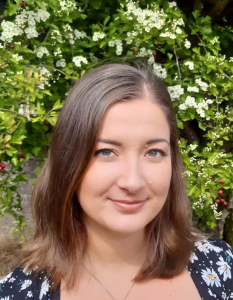
Twitter: @AimeeKMurray
I work on the environmental risk assessment part of the project, including highlighting our work to relevant policy makers.
My PhD was co-funded by AstraZeneca, the pharmaceutical company, which really made me look at my research from a new angle. I was then able to win fellowship funding to carry on my PhD research, which led me to meet the rest of the team at an early-career researcher’s networking event.
When I was younger, I thought I might like to be a writer or a judge. At school, I liked biology, but also English and foreign languages. I wanted to be in a rock band for a while! In the end, I took a biology undergraduate degree. It wasn’t until then that I realised how amazing microbiology is, so I specialised in that as much as I could. I didn’t know what I wanted to do until my final year at university, when I did a lab project on MRSA that made me interested in doing research.
I’ve made some interesting discoveries, and everything is a culmination of lots of little pieces of progress that have added up over time, with support and input from many different people.
I’m motivated by two things: answering questions and making a difference. I’ve always been curious about a lot of things. My work lets me ask and answer my own questions, which is challenging but satisfying. Our work with businesses, different industries and policymakers helps me make those questions and answers useful to society.
As a scientist, it’s important to be determined, curious and persistent. And it’s always worth trying for opportunities, even if you don’t think you stand a chance. I was the first person from my family to go to university, let alone get a PhD. A recent career highlight was being invited to present my research to the All-Party Parliamentary Group on Antibiotics and talking to MPs and members of the House of Lords about how it could make a difference.
I will continue to work on antimicrobial resistance in the environment. I’m interested in whether compounds other than antibiotics can increase antimicrobial resistance. I’m also keen to start exploring more fundamental questions about antimicrobial resistance evolution.
ABOUT SOCIAL SCIENCE
Social science encompasses a broad range of disciplines focusing on how people behave in society and what drives their behaviour. Dr Susan Conlon and Dr Ray Chan both specialise in human geography, while Dr Andy Jones specialises in philosophy and theology.
Susan, Ray and Andy were responsible for engaging with farmers and other stakeholders, to understand what led the farmers to make the choices that they did regarding fungicide use. “We adopted an interview method to understand how farmers perceive their use of azoles and the challenges they face in attempting to reduce it,” explains Ray.
Social scientists help close the gap between hard data and their real-world application. “Our methods help microbiologists understand the social-cultural perceptions and barriers to behaviour change in azole use in everyday farming,” says Ray. “Combining microbiology and social science enables a more holistic understanding.”
“We find opportunities for researchers to engage with public and private stakeholders,” says Ray. Susan highlights the solidarity built through collaboration. “We have benefited from working with open-minded researchers who are receptive to learning about new approaches and methods, and taking risks together,” she says.
Developing interdisciplinary projects is rarely a simple procedure. “The process is time-consuming and requires leadership and sustained team effort to ensure effective communications, mutual understanding and equal treatment of disciplines,” explains Susan. Ray adds, “Avoiding technical jargon steers us towards simpler, more effective language during group discussions.”
EXPLORE A CAREER IN SOCIAL SCIENCE
• The Royal Geographic Society offers career advice and information.
• The Open University has a similar range of resources.
• Susan recommends learning more about what the social sciences are. The UK Research and Innovation (UKRI) provides a useful starting point.
Ray recommends subjects such as geography, sociology, psychology, anthropology and political science to provide the foundation for a career in social science.
MEET ANDY
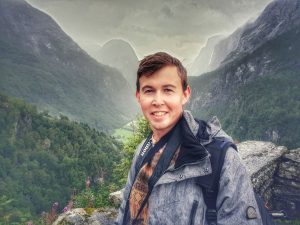
Twitter: @andyjonesphd
In my previous research, I investigated the importance of metaphors for understanding science. Scientists rarely think about how society and language frame how scientific research is conducted. I highlight these factors with the aim of making our research relevant for society.
I was not academic growing up. I didn’t know what philosophy was until I went to college, and I hadn’t planned to go to university until I was inspired by a lecture on whether free will exists! You don’t necessarily need a clear sense of your career – in many cases, unpredictable opportunities will arise that will be significant for your life. Be open to them.
A philosopher once said that all philosophy is just a footnote to Plato. Reflecting on how projects develop is more important than your results. I am continually learning about my own research practices and further questions to explore.
I’m inspired by drawing people together from various specialisms to develop new research questions. I focus on identifying cases where philosophy and theology can bring new perspectives. In another project, I am working with physicists to consider how ethics matter for nuclear industries.
My communication skills have been an asset. I thrive when talking with people from different subjects and collaborating to resolve issues. Previously working in the charity sector, I learnt how to approach people without judgement.
I am the only person in my family to have completed a PhD, so this was a very proud moment for me and my family. Recently, I submitted my first book for publication, exploring how the philosopher Immanuel Kant influenced the development of biology in the British Isles.
I would love to continue working on interdisciplinary projects. I am also exploring opportunities outside of universities where I can apply the skills learnt from these projects to job opportunities in the private sector, policy, communications and project management.
MEET SUSAN
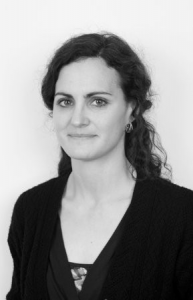
Twitter: @SusanConlon83
I led the initial administration of the project, conducting interviews and informal conversations with stakeholders, as well as coordinating the ethical approval needed from the university to start interviews.
I’m interested in understanding how and why people interact with the natural environment, especially water, to support their livelihoods, in contexts where people are often under pressure to change their practices due to new government policies. To this project, I brought my understanding of the complexities that people face in changing their water use and my experience of social science data collection.
I didn’t know I wanted to pursue a career in human geography. I grew up in rural Ireland and was really involved in my local community as a kid, especially in sports and music. I was always curious about visiting new places and learning new languages. In my late 20s, I became particularly interested in what makes people change their views and actions in relation to the environment.
I am particularly motivated by the interconnectedness of the global challenges we face in relation to the environment and development, and how we can learn from different experiences of similar issues across the globe.
I try to be as open-minded and compassionate as I can be, to have courage to have challenging conversations and to be honest about not knowing a great deal! I am inspired by people who recognise diversity, try their best to adopt a growth mindset, and promote work-life balance.
Making the transition from the private sector to academic research and making wonderful friendships and collaborations along the way have been the proudest moments in my career, so far.
I would love to continue learning about the socio-cultural and political challenges we face in maintaining access to safe and healthy water supply, either within or outside of academia.
MEET RAY
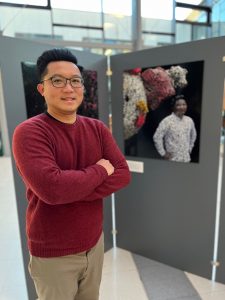
Twitter: @RayChanKW1
My research approach combines social science and scientific knowledge. My experience is beneficial for conducting in-depth interviews with different stakeholders, and for scrutinising farming-specific antimicrobial management strategies.
I have worked with interdisciplinary researchers to examine the reduction of antibiotic use in farm animals in China and the UK. I collaborate with biologists, philosophers and computer scientists to explore to reduce the use of azoles in arable farming.
My concern with antimicrobial resistance stems from growing up on a farm in Hong Kong. This inspired my early research on understanding how farmers in China manage animal health using antimicrobials. This drove me to become a human geographer, to understand the interactions between humans, animals and diseases.
Being awarded a prestigious Wellcome Trust research grant and seeing my students pursue careers in social science research are highlights for me.
Concepts from human geography inspire me to learn new ways of seeing the world, especially in understanding the relationships between people, animals, nature and places within a particular social context.
Three key values have led to my success. Perseverance, for striving to find ways to tackle challenges that arise in the researcher’s journey, integrity for upholding ethical standards when conducting research, and passion to keep learning.
I want to become a leading expert in digital farming and antimicrobial resistance within food production in the UK and China. I plan to develop an interdisciplinary research team of social and STEM scientists to forge new collaborations to tackle the global challenges of antimicrobial resistance.
THE TEAM’S TOP TIPS
01 Be persistent. Never let failure demotivate you – it is the first step towards success.
02 If you have a strong idea of what you want to do, set targets for your career objectives, and persevere if things don’t go to plan.
03 Share your visions and aspirations with those around you. Make connections with people working in the field you want to join.
Do you have a question for Dhara, Aimee, Andy, Susan or Ray?
Write it in the comments box below and Dhara, Aimee, Andy, Susan or Ray will get back to you. (Remember, researchers are very busy people, so you may have to wait a few days.)

